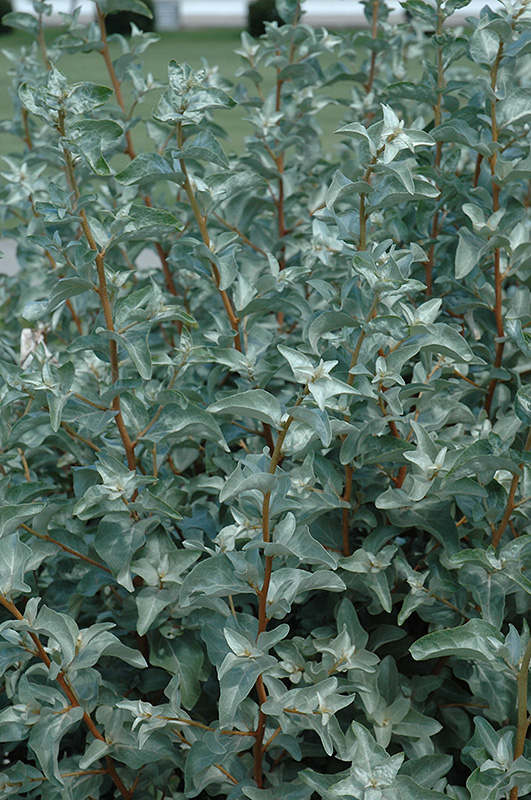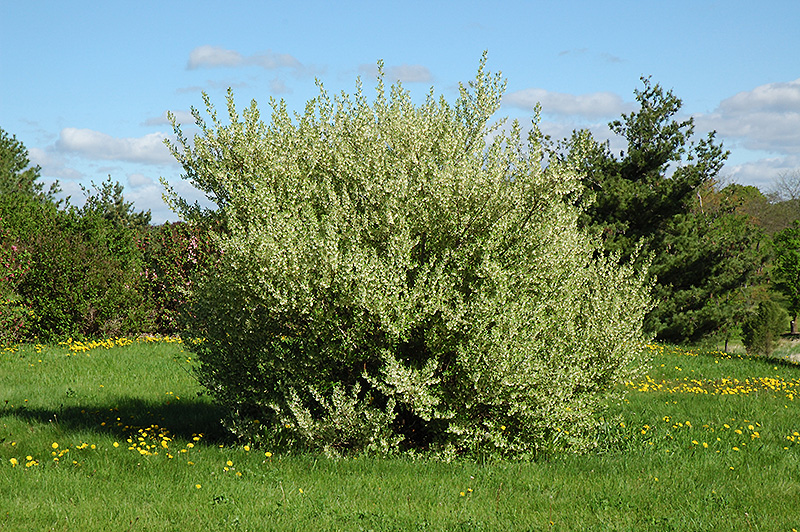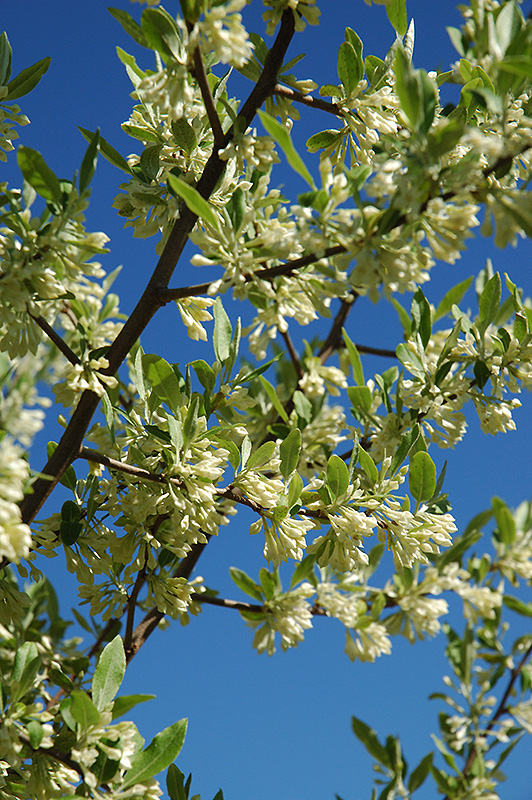PLANT FINDER
Height: 10 feet
Spread: 10 feet
Sunlight:
![]()
Hardiness Zone: 2a
Other Names: Wolf Willow
Description:
A spreading, suckering shrub with distinct grayish-silver foliage all season long, makes a wonderful color contrast where the suckering is not a problem; irregular shrubby habit; small yellow flowers are sweetly fragrant, extremely drought tolerant
Ornamental Features
Silverberry has attractive silver deciduous foliage on a plant with an upright spreading habit of growth. The fuzzy narrow leaves are highly ornamental but do not develop any appreciable fall color. It features subtle fragrant buttery yellow bell-shaped flowers along the branches in late spring.
Landscape Attributes
Silverberry is a multi-stemmed deciduous shrub with an upright spreading habit of growth. Its relatively fine texture sets it apart from other landscape plants with less refined foliage.
This is a high maintenance shrub that will require regular care and upkeep, and is best pruned in late winter once the threat of extreme cold has passed. Gardeners should be aware of the following characteristic(s) that may warrant special consideration;
- Suckering
Silverberry is recommended for the following landscape applications;
- Hedges/Screening
- Naturalizing And Woodland Gardens
Planting & Growing
Silverberry will grow to be about 10 feet tall at maturity, with a spread of 10 feet. It tends to be a little leggy, with a typical clearance of 1 foot from the ground, and is suitable for planting under power lines. It grows at a fast rate, and under ideal conditions can be expected to live for approximately 30 years.
This shrub should only be grown in full sunlight. It is very adaptable to both dry and moist locations, and should do just fine under average home landscape conditions. It is considered to be drought-tolerant, and thus makes an ideal choice for xeriscaping or the moisture-conserving landscape. It is particular about its soil conditions, with a strong preference for clay, alkaline soils, and is able to handle environmental salt. It is highly tolerant of urban pollution and will even thrive in inner city environments. This species is native to parts of North America.




